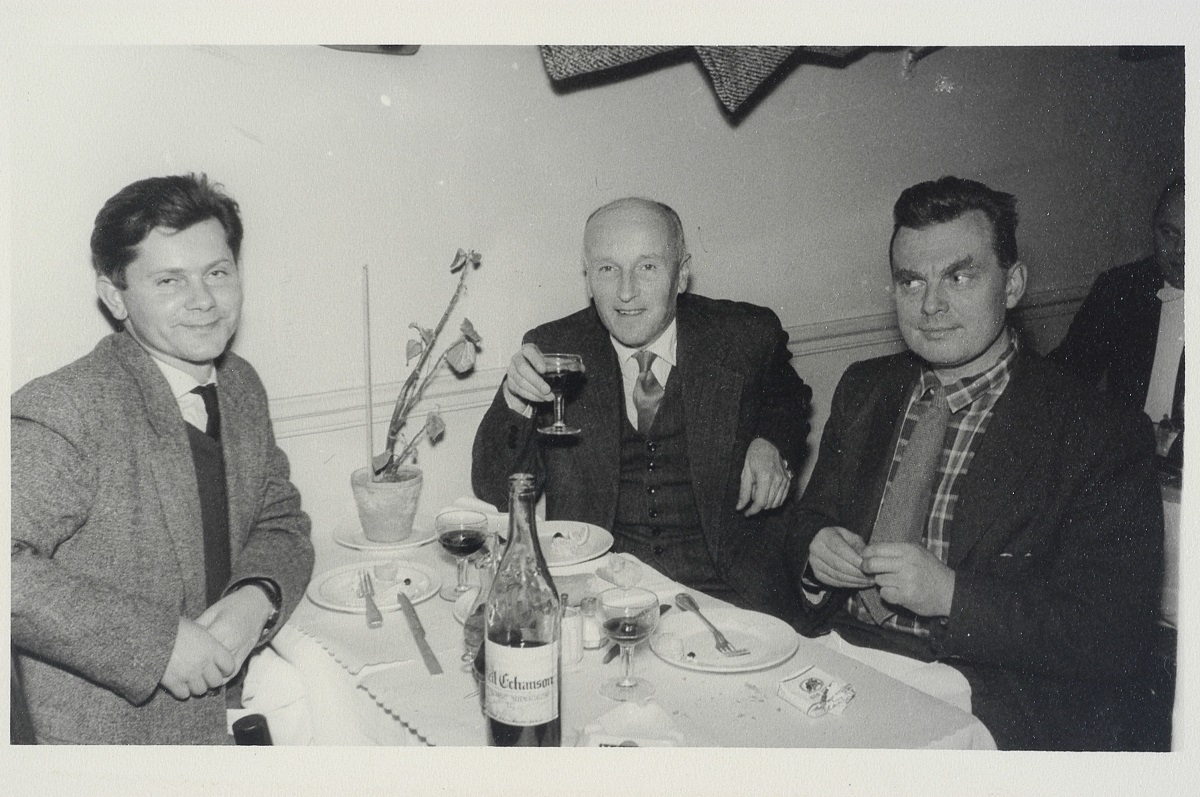
Traveller, womaniser, sensitive observer and loner. Psychotic, who struggled with alcohol and the demons of his soul. Poetry genius, a man from Lviv, humanist. School reading list author and a man surrounded over time by an increasing number of myths. Supposedly, Zbigniew Herbert liked pretending to have a twin brother, he would disappear without saying goodbye and smoke like a chimney. The first comprehensive biography of his life has just been published. Its author, Andrzej Franaszek, had already written a book which demythologised Czesław Miłosz a few years before. Is Herbert, whom he portrays in his new book Biografia, as intriguing a character?
When writing a biography of such a great poet, you had to confront a certain kind of ‘commonly known truth’. After all, there are myths and some narrations already in existence; besides, his family is still alive, and you certainly did not want to hurt them. Did you feel this kind of pressure while writing?
In my opinion, when writing a biography, you should not think about what other people want to read. That would paralyse you. In all honesty, you write in part for yourself; you want to pronounce your own truth and tell others how you understand this or that character. I am not talking about exaggerated artistic ambitions, and certainly not about egocentrism; I am talking about remaining true to yourself.
I was not ‘commissioned’ by anyone to do this work. Thank God, I did not feel any pressure, and I did not have the impression that I was expected to present a specific image of the poet. Nobody urged me to ‘cover up’ or ‘vet’. In this respect, the person who mattered most to me was Katarzyna Herbert. Many years earlier, she had already talked frankly about the difficult aspects of her husband's life—his infidelities, his mental illness. Of course, she had also talked about his goodness and intellectual passion. I gained her trust; I was allowed, for instance, to read her correspondence with Zbigniew Herbert. She never tried to censor me.
But first and foremost, when writing the book, I was trying to be as fair and honest to ‘my character’ as possible.
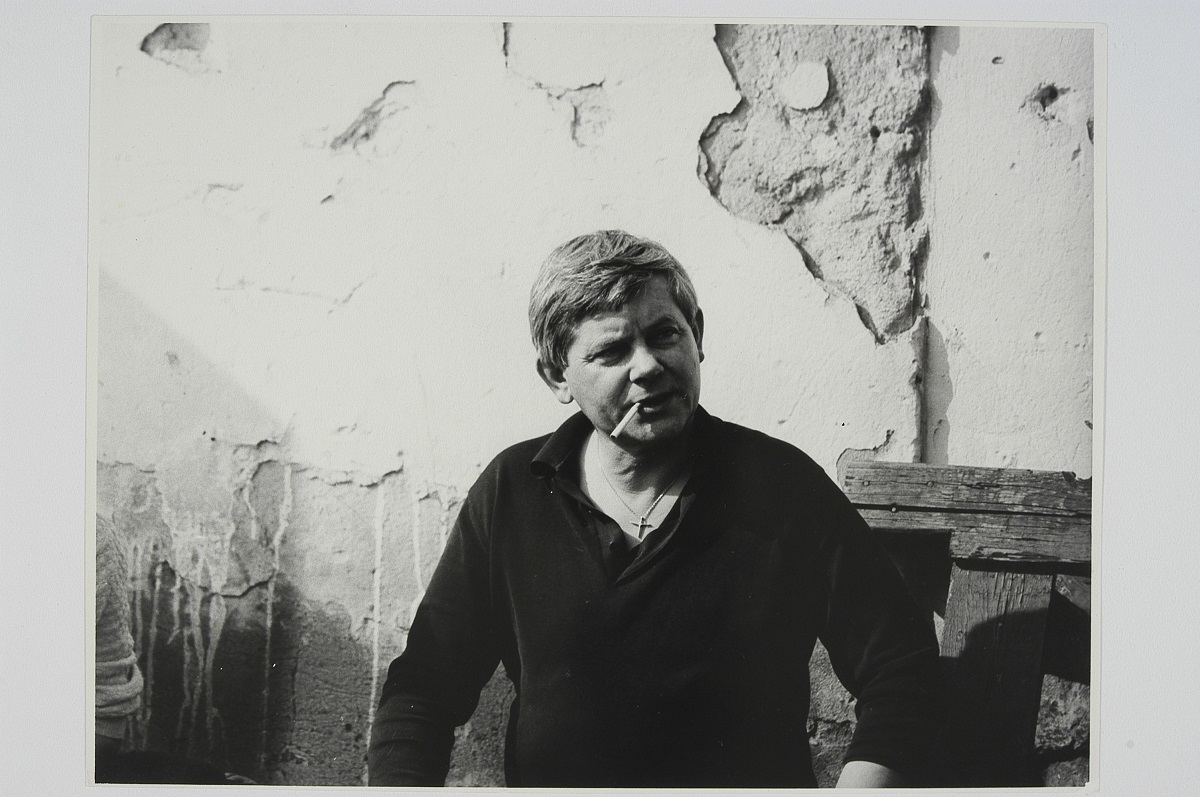
Some of the myths were created by Herbert himself. One of the stories that you analyse in detail concerns Herbert's alleged membership in the Home Army [Polish resistance movement in World War II; translator's note] and his guerrilla activity. There is also a story about him studying art and acting. Why did Herbert embellish or even invent his own life history?
It is not true that Herbert continuously made up things about his life. One needs to balance the proportions. He was an artist; he sometimes preferred an interestingly presented story to its truer but less interesting version. One day he was talking with a young radio journalist and invented for her the story about his parents sending him to a cadet school in Lviv. He liked the story and he liked the attention in the eyes of the beautiful woman who was listening to him.
For someone else, he invented the story about his duel to protect the honour of a woman. His opponent, a professional officer, had the right to select the weapon and chose the sabre. Although Herbert had never held a sabre before, he did not pull out and he did not offer immediate surrender; he even managed to wound his opponent. Herbert would declare that this was possible because he had been fuelled by the conviction that he was fighting for a just cause.
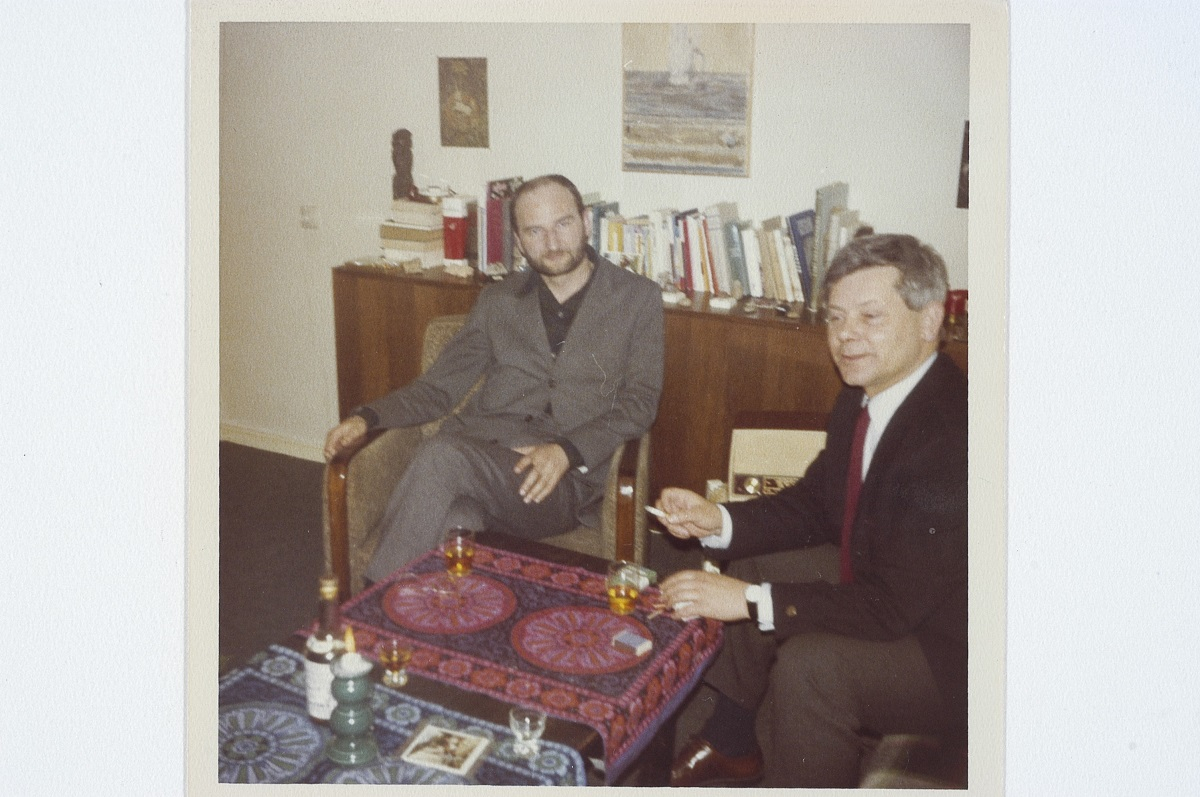
As a matter of fact, stories like these must have been perfect during various social events. And Herbert certainly had a talent for acting and the need to play roles. It is natural for all of us to pretend certain things, but he succeeded in turning pretence into a veritable art form. A classic example: he meets someone at a party and at once pretends that he is not Zbigniew Herbert but Zbigniew Herbert's brother, who is a plumber. Why would he act like that? Perhaps in order to confound his interlocutor, or to escape the ascribed role?
The issue that to this day provokes probably the most emotional reactions is the question of his participation in the resistance movement. Herbert was always very emotional about this subject. He had an explicitly positive, idealised, even reverent attitude to the Warsaw Uprising, the Home Army and the so-called ‘generation of the Columbuses’ [Poles born soon after the country gained independence in 1918; translator's note]. He probably never accepted the view that there had also been a dark side to the armed combat in occupied Poland – that the uprising had been a tragic mistake and that during Hitler’s occupation only a small part of Polish society had been active in the underground movement. The great majority remained a ‘substance’, as he put it in one of his poems, and they were concerned only about their own survival. It does not mean that he condemned people who were trying to survive; it is just that he expected from himself more that he had managed to achieve. He went through the war fairly safely; he did not fight. By no means should we fault him for that, but he apparently found it uncomfortable later in his life. So when talking about his youth, he would include grains of untruth which ‘improved’, and sometimes even changed, this all too common curriculum vitae. Hence the mentions of, say, a wound suffered in a guerrilla action. Note that all this was probably more important to Herbert himself that to his audience.
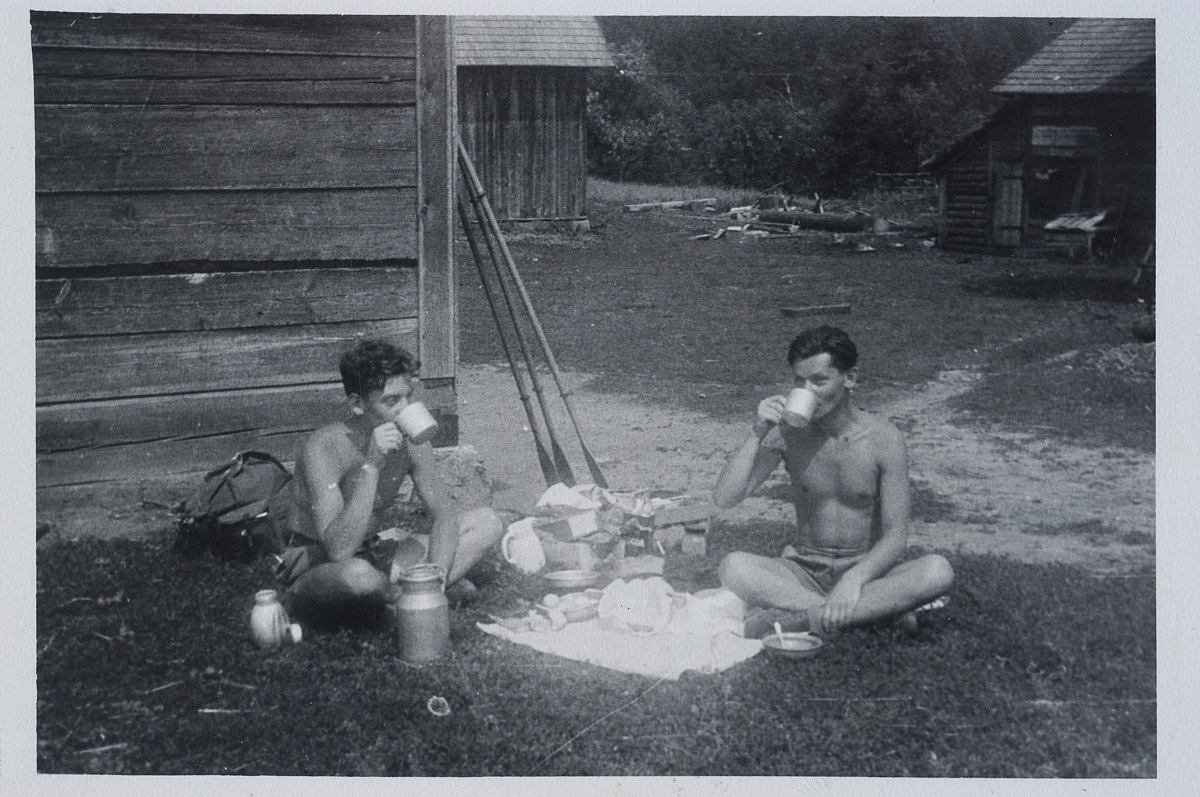
When writing about Herbert's relationships with women, you use the name Peter Pan, which denotes a man who does not want to or cannot grow up—an adult but with shiny eyes and a boyish charm. To what extent does this description apply to Zbigniew Herbert? Was it a kind of model for romantic relationships, one that he subconsciously kept returning to?
We all behave in different ways in relation to different people. Herbert, too, showed different faces to different women. There were times when he was gallant, protective and mature, but there were also times when he was just the opposite—acting like a cad, disappearing without notice and shirking responsibility. You could well write a separate booklet about his romances, including the exceptionally painful ones, like his relationship with Halina Misiołek. She was ten years older, married and had two daughters. She wanted to build a lasting relationship with Herbert; she got divorced, but he envisaged his own future in a completely different way. For years, Misiołek remained in love with him and would help him in all possible ways—buying books, baking cakes, arranging matters for him, copying poems...
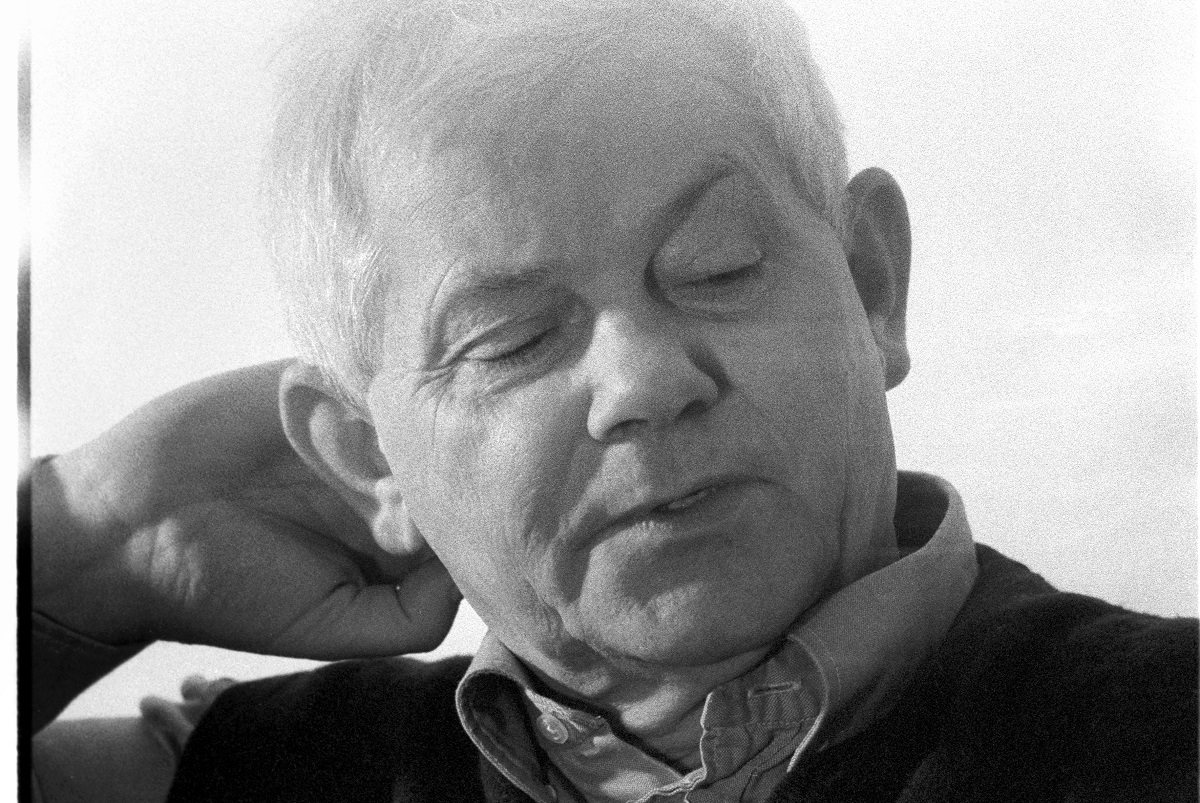
He followed a similar relationship model during his stay in Paris, where he met Raymonda von Elsen, an elegant widow who was older than him, had an adolescent daughter and was yet another woman to mother him and fall deeply in love with him. Both these relationships were slightly reminiscent of his childhood, when he was pampered by his sister, mother and grandmother.
His most important relationship, though—the one with Katarzyna Herbert—was completely different. She was younger than him, and when they met for the first time she was, as she herself puts it, extremely inexperienced and naive. Herbert proved then that he could be protective, gallant, tender and attentive. Perhaps the fragile yet existing equilibrium in their marriage lay in the fact that although Herbert was ill and eager to shift on to her any practical tasks, he was also a fascinating man who could tirelessly exchange thoughts and inspirations.
One could also mention some of his more sensational relationships, like the affair in the 60s with the Austrian actress Angelika Hauff. Some of the moments in that romance were almost film-like: she would come from Paris bringing oysters, she would tease with her sensuous fur coat, and he admired her on stage. Eventually, he had to break free from this relationship. He left Vienna and went to Italy, but before he did so, he dedicated to her one of his most important poems Dlaczego klasycy(Why the Classics).
In general, he liked disappearing, marking his independence and stressing the fact that he had not become fully tamed. Even as a small child he would occasionally leave the house, announcing to his older sister that he was going to ‘get lost’. He certainly wanted to attract attention and have someone find him. But he had this need for independence and seclusion throughout his life. Even when weak and ailing: shortly before his death he was lying in bed with an oxygen mask but somehow managed to talk his nurse into buying him tickets to Venice; he was sure that he would be able to leave home one more time, or rather that he could escape and start the next chapter of his life.
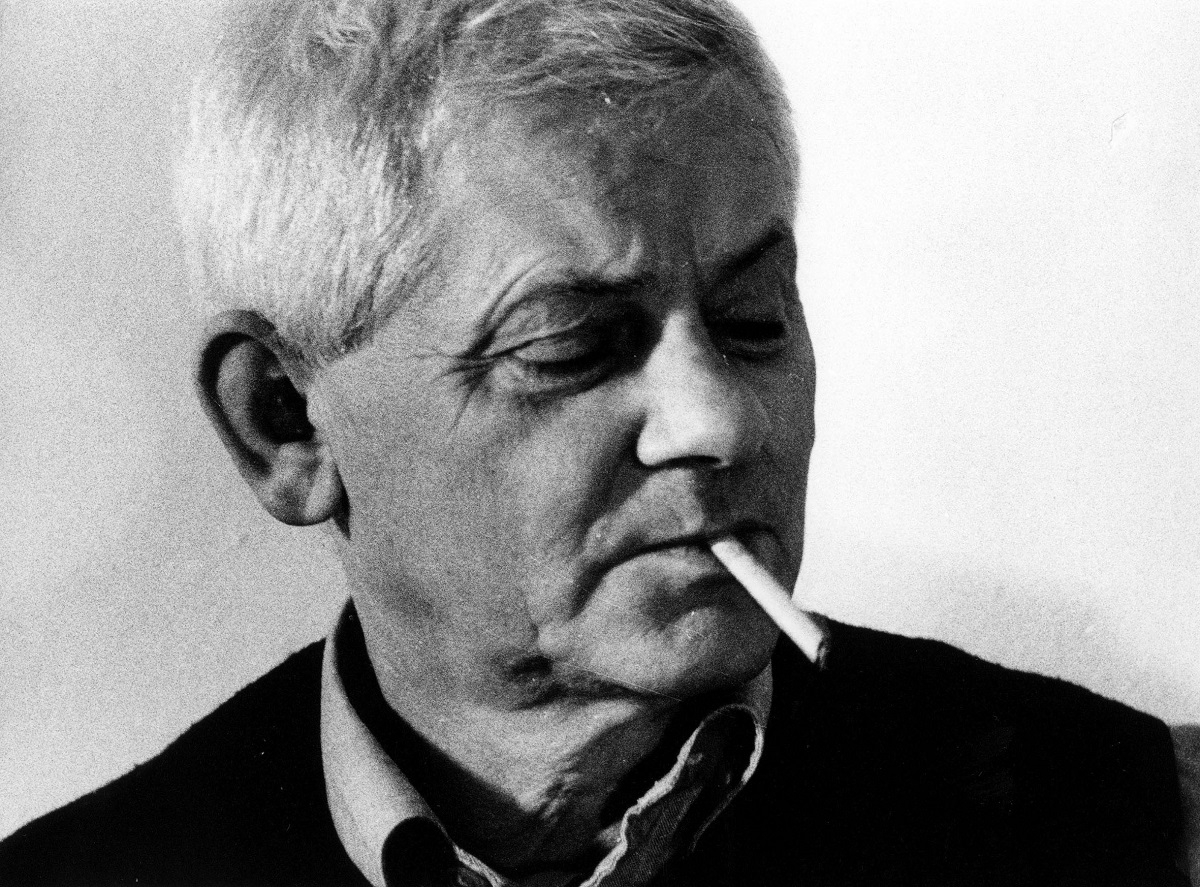
You mentioned the mental illness. Can you point to one definite moment when Herbert discovered that his soul was ‘ill’?
Even as a young man he felt worried about some of his mental states. His mother suffered from bipolar affective disorder. He must have seen her struggling with alternating depression and overexcitement, and it certainly occurred to him that he might also become ill one day. In a sense, this corresponded well with the myth of the artist.
His first long stay in the West (1958–1960) had a significant impact on his mental condition. It was probably then that he began to drink more—he was young, alone for a fairly long time, and he had to face the challenges of an unknown world. It was not a tourist trip; it was an artistic stay. He was a writer, and he wanted to see, learn, understand and retain in his mind and work as much as possible. He had extremely high expectations of himself. This must have caused a great deal of tension, and he took to alcohol to dispel his anxieties and fears.
The moment you asked about, one that left no doubts whatsoever, came in 1967. Herbert was then living in Antony, near Paris. It was there that he had a nervous breakdown, felt that there was no escape and became afflicted with a persecution complex. His mental state was so serious that he had to seek help from a psychiatrist, who diagnosed bipolar disorder.
Katarzyna Herbert mentioned with great honesty that this was one of the reasons why he decided to get married. They had met in 1956, went through the phase of infatuation and enthusiasm, and later through Herbert's ‘catlike’ escape based on the conviction that he was not ready at all to build a stable relationship and that it was poetry that mattered most to him. So they did not marry until twelve years later. The following thirty years of their marriage were marked by his illness. It is like a ‘pendulum swing’: at times you are seized by darkness, feel that you are going to die of fear, think that it is better to jump out of the window than try to endure it any longer. Then comes the period of manic activity and unnatural enthusiasm. In these phases, Herbert would plan new books, spend his last cent, pick up women; for a short moment he was convinced that ‘the world belonged to him’. It is important to mention that due to his illness he went through long months when he was unable to write anything or focus on anything. In the first place, though, it has to be said that Herbert's illness did not determine his entire life. He fought against it and he remained largely independent and creative.
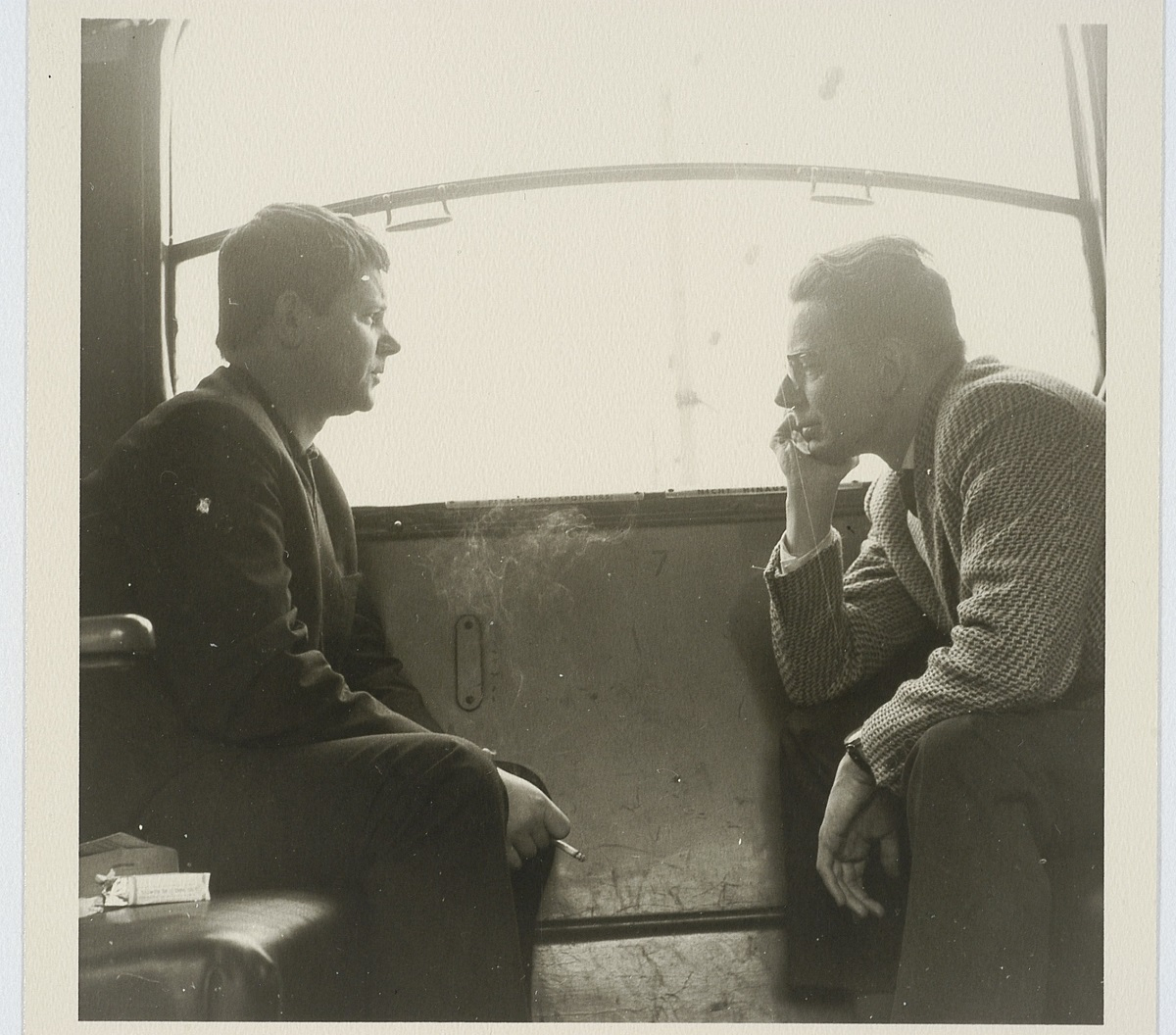
You once told me that there were some aspects about Herbert that worried you. Does it mean that you decided not to talk or write about certain issues?
Just as in the case of Miłosz’s biography, I was careful when including details that could be interpreted morally. It is very easy to quote a second-hand anecdote and have readers think: “My God, what a horrible man he was”, whereas such an anecdote would be nothing but a tiny excerpt from the story about the life of a complex and fascinating person.
*
Andrzej Franaszek – born in 1971, graduate of Polish Studies at Jagiellonian University, literary critic, editor of the culture section of Tygodnik Powszechny. He specialises in the work of contemporary Polish writers. He wrote i. a.: Ciemne źródło. Esej o cierpieniu w twórczości Zbigniewa Herberta[literally: Dark Spring: An Essay on Suffering in Zbigniew Herbert's Works] and Przepustka z piekła. 44 szkice o literaturze i przygodach duszy [literally: A Pass from Hell: 44 Sketches on Literature and the Adventures of the Soul]. He is also author of the monumental biography of Czesław Miłosz (published by Znak, 2011), which won him the Kościelski Award, the Kazimierz Wyka Award, the Ministry of Culture and National Heritage Award and the Nike Audience Award by Gazeta Wyborcza. He has recently written a biography of Zbigniew Herbert (Herbert. Biografia; published by Znak, 2018).
Andrzej Franaszek, Herbert. Biografia, published by Znak, available in bookshops from April 2018
Franaszek portrays Zbigniew Herbert with great meticulousness. He does not shun difficult or controversial topics and he closely examines Herbert's correspondence as well as the hitherto unknown private notes—all that in an attempt to shed new light on the poet's creative work. He presents Herbert's tangled fortunes against a broad historical background, which makes his nearly two thousand-page book a fascinating, multi-layered story about one of the most prominent twentieth-century Polish authors and the age that shaped and inspired him.
Translation Elżbieta Pawlas/Solid Information Solutions; Proofreading Linda Wilharm


Zaloguj się, aby zostawić komentarz.